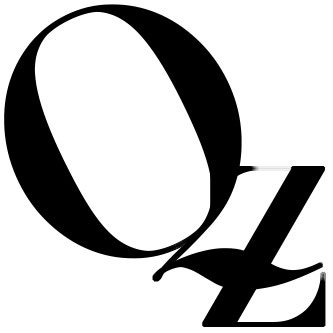Subtotal ₹0.00
Gaza’s Silent Eid: How Palestinians Are Celebrating Amid War and Hunger
A Time for Joy, Shadowed by Grief
Eid al-Fitr is a day usually filled with hugs, laughter, and the aroma of home-cooked feasts. Around the world, families gather to celebrate the end of Ramadan, exchanging gifts and prayers. But for thousands of Palestinians in Gaza, this year’s Eid feels nothing like a celebration.
Instead of joy, there’s silence. Instead of family gatherings, there are empty chairs and hollow memories.
War Leaves Its Mark
Gaza, long troubled by political unrest, is now facing unprecedented hardship. Since the conflict reignited, its people have been living under constant fear, uncertainty, and deprivation.
What’s worse? The war drags on with no clear end in sight.
Over 34,000 Palestinians have reportedly lost their lives since last October, with thousands more injured. There’s hardly a family untouched by tragedy. Many have lost loved ones, while others have had to flee their homes, now living in overcrowded shelters with little access to basic necessities.
No Food. No Water. No Homes.
Imagine waking up on a holiday morning not to the smell of breakfast but to sirens—and no food in your pantry.
That’s the reality in Gaza right now.
Most families can’t even afford bread, let alone traditional Eid dishes. According to residents, they barely have enough clean water to drink or cook with. Sanitation is poor, diseases are spreading, and the humanitarian aid that trickles through isn’t nearly enough.
- Electricity? Mostly out.
- Running water? Scarce.
- Medical care? Critically limited.
How can anyone celebrate Eid under such conditions?
What Eid Means in Gaza Today
Eid has always symbolized hope, forgiveness, and community. But in Gaza today, the atmosphere is one of sorrow and survival.
Children who once looked forward to new clothes and toys now ask if they’ll survive the night. Parents, once preparing feasts for extended family, are now focused only on finding food for their children.
One mother shared, “This Eid, I have no home, no husband, and nothing to offer my children. But I pray.”
This small statement speaks volumes, reflecting the painful choices families are forced to make in times of war.
The Empty Streets and Mosques
In a typical year, Eid in Gaza would bring busy markets, full mosques, and a buzz of excitement. But now?
The streets are eerily quiet.
Only a handful of men showed up for the morning Eid prayers at what remains of Al-Aqsa Martyrs Mosque in Khan Younis—a once-lively spot now partly reduced to rubble.
Mosques that used to echo with Eid chants now stand damaged or destroyed. Worshippers cry as they pray, mourning the dead and pleading for peace.
A Glimmer of Resilience
Still, one can’t help but admire the strength of Gaza’s people. Even in the darkest times, they find ways to hold on to their humanity. Whether it’s gathering in makeshift shelters to say a quiet prayer or sharing a piece of bread with a neighbor, many cling to small acts of kindness.
That’s resilience in its purest form.
However, resilience shouldn’t come at the cost of survival. The world must not mistake survival for acceptance.
Why This Story Needs to Be Heard
When we hear about war in the news, it’s easy to get numb to the numbers. But these aren’t just statistics; they’re people—families like yours and mine.
Children without shoes, mothers without medicine, fathers without hope.
By sharing these stories, we highlight the human side of war, something numbers will never fully capture.
So What Can We Do?
You may wonder: “What difference can I make?” It starts with awareness but doesn’t end there. Here are a few small steps that can help:
- Stay informed: Read from reliable sources to understand what’s truly happening.
- Support humanitarian aid: Donate to trustworthy organizations providing food, water, and medical assistance.
- Raise your voice: Share stories on social media, write to your representatives, and advocate for peace.
- Educate others: Often, the people around us are unaware of these daily realities. A conversation can go a long way.
The Road Ahead: Hope or More Hardship?
Ending a conflict like this one is never simple. It involves politics, history, and deeply rooted tensions. But while peace may not arrive overnight, every small effort counts.
Eid may look different in Gaza this year—more tears than laughter, more prayers than parties—but hope hasn’t entirely disappeared. It lives in quiet moments. It hides between heartbreak and resilience.
As one elderly man said during Eid prayer, “I came here today not to celebrate, but to ask God to protect the few of us left.”
Let those words sink in.
Final Thoughts
Eid is a time to reflect on gratitude, compassion, and community. Let’s use this moment not just to count our blessings, but also to extend a hand to those who walk through fire every day.
What if your home turned to ashes overnight? What if your child didn’t know the taste of a full meal for months?
These are not distant possibilities for Palestinians in Gaza—they’re daily struggles.
So this Eid, while we enjoy our meals and celebrations, let’s also remember those for whom joy feels like a distant dream.
Because real celebrations happen when we include everyone—especially those suffering in silence.
—
Relevant Keywords: Eid in Gaza, Gaza conflict 2024, Palestinians struggle, civilian suffering in Gaza, humanitarian crisis in Gaza, Gaza war impact on families, war and Eid, Palestinians celebrate Eid under siege, Gaza Eid news, Ramadan ending in Gaza







